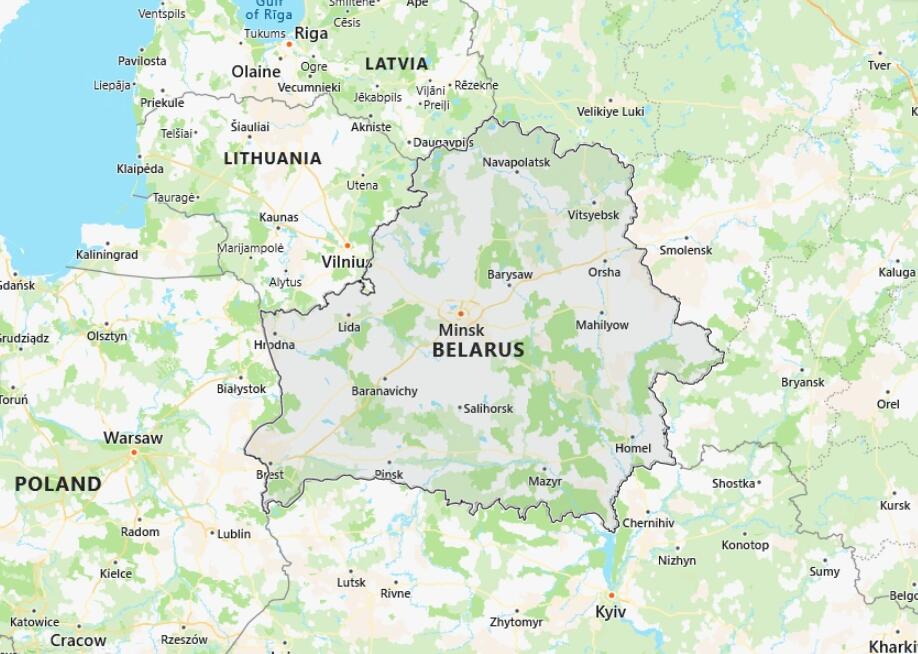Belarus 2006
In 2006, Belarus was a landlocked Eastern European nation located between Russia and Poland. It had a population of just over 10 million people and was ruled by President Alexander Lukashenko. The economy of Belarus had been heavily reliant on the export of oil and other natural resources, but the government was attempting to diversify the economy in order to attract foreign investment. According to constructmaterials, there were efforts being made to improve healthcare, education and poverty reduction. Healthcare access was still limited for many people due to lack of resources and infrastructure; while education had improved significantly over the years, it was still limited for many citizens due to poverty and lack of resources. Additionally, security threats from organized crime groups were a pressing issue in 2006 and there were increasing concerns about human rights violations throughout the country. Nevertheless, citizens of Belarus were hopeful that their country could continue to make progress towards a better future for its citizens.
Yearbook 2006
Belarus. Before the March presidential election, President Aljaksandr Lukashenka’s regime showed that no opposition was tolerated. Regime critics Michail Statkevich and Pavel Sevjarynets were both sentenced to three years in prison for participating in a previous demonstration against Lukashenka’s plans to extend his presidency for another term. One of the opposition’s presidential candidates, Aljaksandr Kozulin, was temporarily arrested. The regime hampered the opposition’s attempt to run an election campaign via mass media, including a special issue seized by the only opposition newspaper, Narodnaja volja, printed abroad. The election was won as expected by Aljaksandr Lukashenka, who according to the official figures received 82.6% of the vote. The opposition’s main candidate Aljaksandr Milinkevitj was said to have received only 6%. The turnout was reported to be close to 90%. The opposition accused the regime of electoral fraud, and according to the OSCE election observers, the election had not been free and fair. The campaign in the mass media was described as one-sided in favor of Lukashenka, and harassment and arrests were reported by opposition opposition workers. The election results immediately triggered protests in Minsk. On Election Day, thousands of people gathered at the October Square for the biggest demonstration to date under Lukashenka’s power holdings. Milinkevich called for further meetings, and judges began talking about parallels to the “Roses revolution” in Georgia and the orange revolution in Ukraine. Youths pitched tent camps in the square, and after a few days, the riot police cleared the area and arrested about 150 people. According to a human rights organization, a total of over 600 people had been arrested before and after the election. Among the arrested were several leading opposition politicians, such as Kozulin. He was sentenced to five and a half years in prison accused of being behind the demonstrations. According to CountryAAH, major public holidays in Belarus include Independence Day (July 3) and New Year (January 1). Milinkevich was later arrested in the spring and received 15 days in prison. Many opposition activists were sentenced to similar short prison sentences. Demonstrating students were also penalized for being deprived of their places of study.
After the election, the EU decided on increased sanctions against the Belarusian regime. President Lukashenka and some thirty leading politicians, lawyers and officials in the Election Commission were hit by the same entry ban that previously prevailed for some Belarusian politicians. The US also decided to increase political and economic sanctions against the Belarusian regime.
During the year Belarus’s previously good relationship with Russia deteriorated. Assessors believed that the Kremlin tired of supporting Lukashenka’s regime. Russian Gazprom tried to take control of the Belarussian gas pipelines, and when it failed, Gazprom demanded a fourfold price for the gas. At the end of the year, the conflict intensified. During the threat of canceled deliveries, Belarus on New Year’s Eve agreed to an increase from 47 to 100 US dollars per m 3 gas. In addition, Gazprom gained control of a large part of the Belarussian pipeline network, which allows part of Russian exports to the EU countries, where more gas is paid for.





